NUBIANMESSAGE



Hey Y’all,
We’ve been on campus for a month now! Time really flies. Personally, I still don’t know what’s going on. But enough about me, there’s more important things going on. It's Latine Heritage Month! Although any celebration of culture cannot be limited to just one month.
Other things that can’t be limited: the information we’re bringing to you in this issue. We have news on the tragic shooting that took place at UNC Chapel Hill, Trump's indictment and rising COVID-19 rates. We also have an article talking about the blockade in Artsakh.
We are also serving you with interesting topics in our opinion section. As always social media is a very trifling place, and we’re calling it out in our articles.
But the thing I am the most excited for you to see is our pages on Latine Heritage Month. Thank you to our amazing staff member, Rebecca Hernández who came up with the concept for our gallery. And thank you to the people who volunteered to participate. We also have a playlist all about Latine artists, and some media suggestions from our staff that center Latine culture.
Until next time, Milan
4 COVID SPIKE
COVID rates sharply rise in the US
6 GALLERY Latine Heritage Month photoshoot
9 NUBIAN SUGGESTIONS
Our staff's top picks
11 TOXIC ENTREPRENEURSHIP
How social media can influence toxic entrepreneurship
The Sentinel of the African-American Community at N.C. State Since 1992.
314 Witherspoon Student Center, NCSU Campus Box 7318, Raleigh, NC 27695
office 919-515-1468
advertising 919-515-2411
online thenubianmessage.com
Editor-in-Chief
Milan Hall nubian-editor@ncsu.edu
Managing Editor Communication Lead

Kaela Belingon
Austin Modlin
Nadia Hargett
Micah Oliphant
Eleanor Saunders
Photo editor Staff Writers Layout designer
Abigail Harris Jeanine Ikekhua
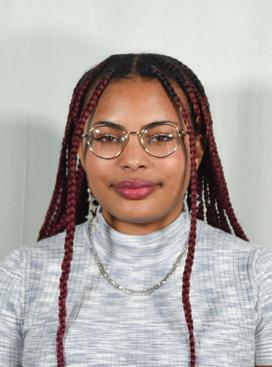 nubian-managingeditor@ncsu.edu
nubian-managingeditor@ncsu.edu
Shaere Delgiudice
Rebecca Hernández
Alianna Kendall-Brooks
Only with the permission of our elders do we proudly produce each edition of Nubian Message:
Dr. Yosef ben-Yochannan, Dr. John Henrik Clark, Dr. Leonard Jeffries, The Black Panther Party, Mumia A. Jamal, Geronimo Pratt, Tony Williamson, Dr. Lawrence Clark, Dr. Augustus McIver Witherspoon, Dr. Wandra P. Hill, Mr. Kyran Anderson, Dr. Lathan Turner, Dr. M. Iyailu Moses, Dokta Toni Thorpe and all those who accompany us as we are still on the journey to true consciousness.
GUYS IM SO F------ SCARED.” These were the messages received by terror-stricken students at UNC-Chapel Hill as they fled indoors, escaped through windows and barricaded themselves in dark classrooms.
On Monday, Aug. 28, a graduate student at the University of North Carolina at Chapel Hill (UNC) shot and killed Dr. Zije Yan, a faculty member and professor.
Just moments after the incident, which transpired around 1 p.m., 911 calls reporting an active shooter on campus triggered a three-hour emergency lockdown. One caller identified the assailant as Tailei Qi, a grad student whose faculty advisor happened to be Yan.
As emergency sirens blared throughout campus, students received messages from Alert Carolina warning them that an armed and dangerous person was on or near campus. Though Qi was arrested about 90 minutes afterward, the students of Chapel Hill remained on lockdown until 4:15 p.m.
“It lasted 190 minutes,” is what Editorin-Chief Emmy Martin and assistant editor Lauren Rhodes wrote in the latest issue of Chapel Hill’s student newspaper, The Daily Tar Heel. Published just a day after the incident, the issue’s cover page has garnered national recognition for its poignant presentation of messages students received amidst the shooting.
“I WISH THESE NEVER HAPPENED. STAY CALM AND SAFE - WE LOVE YOU. I AM SO SORRY THIS IS HAPPENING. I LOVE YOU. WHAT THE F--- IS HAPPENING? MULTIPLE VOICES AND LOUD BANGING. I’M IN CLASS EVERYONE IS LOSING IT PEOPLE ARE LITERALLY SHAKING.”
President Joe Biden reposted the issue on X, formerly known as Twitter, writing “This was the front page of UNC-Chapel Hill's Daily Tar Heel. No student, no parent, and no American should have to send texts like these to their loved ones as they hide from a shooter. I'll continue to do all I can to reduce gun violence and call on Congress to do the same.”
Dr. Yan’s death reignited conversations regarding gun violence and mass shootings in schools. On Wednesday, Aug. 30, in
the wake of the tragedy, 600 students and community advocates gathered at the Bell Tower of Chapel Hill to protest gun violence and honor Dr. Zijie Yan. They held up copies of the Daily Tar Heel and signs that read “This is our reality.”
David Hogg, co-founder of the nationwide gun control movement March for Our Lives, protested with students and stated, “This is a critical state because this is where change is possible, a lot more than in Washington. If students at UNC and elsewhere turned out and voted, they could change the state legislature.”
Later that Wednesday night, thousands of students and community members gathered for a candle-lit vigil, paying tribute to the life of Zijie Yan.
“Dr. Yan left this world a better place for his brilliance, his commitment and the lives that he affected. That’s a life well lived and a life ended far, far too soon,” said UNC Chancellor Kevin M. Guskiewicz.
Yan began teaching at UNC-CH in 2019, after being a professor at Clarkson University. He served as an associate professor and faculty advisor in the Department of Applied Physical Sciences, overseeing a lab with several students, including Qi.
Following his passing, colleagues from Rensselaer Polytechnic Institute, where Yan had studied, and Tulane University published tributes and shared insights about his character. Former advisor and close friend, Doug Chrisey, recalled publishing 17 papers with Yan as he was still learning English.
“He would knock on my door with incredible experimental results and a huge smile. He would leave feeling he didn’t understand anything about the nucleation and growth of nanoparticles, but still with a huge smile,” Chrisey wrote. “He was a person who had a resting smiling face and it was really representative of his beautiful soul.” After Yan’s passing, Chrisey started a GoFundMe to create a trust fund for Yan’s two daughters.
The shooter, Tailei Qi, has been charged with first-degree murder and having a gun on educational property. Qi was indicted on both charges on Tuesday, Sept. 5. The incident has reached a national audience, once again bringing to light the impact gun violence can have on one person, a family, a community and the nation.
nadia hargett Staff WriterOn Aug. 15, former President Donald Trump faced an indictment regarding the case of the alleged 2020 Georgia election rigging. Trump, along with 18 other co-defendants, face numerous charges for their involvement, with it totaling out to 135 against them all. The case is incredibly broad, including activity spanning from over two years ago. This activity primarily focuses on numerous schemes and efforts to overturn Trump’s election loss in Georgia. The indictment details these schemes and who faces what charges. These are some of the major charges Trump faces.
Months after his Georgia loss, Trump, alongside six other co-defendants, attempted to convince officials that they could oppose the results of the election without breaking the law. The indictment points to false statements made in a court filing and to the special grand jury to back up these claims.
Trump and 10 other co-defendants were also charged with scheming to appoint an alternate slate of electors. This idea was first pitched by attorney Kenneth Chesebro who faces charges as well. A letter was written to Trump’s designated electors to conduct a meeting where they could certify themselves as legitimately elected. Involvement in this scheme resulted in other charges paired with the primary one, including forgery and impersonating a public officer.
Trump and his former chief of staff, Mark Meadows, were both charged for participating in phone calls meant to pressure state officials to overturn Georgia’s election results. Trump personally made a call to Georgia Secretary of State, Brad Raffensperger, and pressured him to “find” the votes necessary to overturn Biden’s victory in the state. The call was recorded and Trump hasn’t denied the authenticity of the recording. He went on to stand by what he said, summarizing the conversation with, “You owe me votes because the election was rigged.”
The 98-page indictment goes in-depth with the numerous other charges Trump and his allies face, the main focus being the violation of Georgia’s RICO (Racketeer Influenced and Corrupt Organizations
Act) Law. Georgia’s RICO Law is more expansive than the federal RICO Law, granting prosecutors the ability to attach various alleged crimes under one criminal prosecution. This means that Trump’s charges of forgery, scheming to appoint an alternate slate of electors, false statements and writings, conspiracy to defraud the state, impersonation of a public officer and pressuring state officials, amongst the other crimes, are all attached and combined into one charge that could carry a 20-year prison sentence. His trial will take place on March 25, 2024, but there’s a chance the date could be moved.
This criminal indictment marks his fourth this year. The previous indictments regard falsifying business records to hide an alleged affair during his 2016 presidential campaign, hiding classified information and lying about it, plotting to overturn the 2020 election and events leading up to the Capitol riot on Jan. 6, 2021, and defaming E. Jean Carroll, a woman he was found guilty of sexually abusing, by calling her “a whack job” a day after the jury reached the verdict. His trials for these indictments will all coincide with his 2024 presidential campaign.
Trump has ultimately pleaded not guilty to his charges and has promised to fight against them while claiming to be a victim of a “weaponized justice system.” He’s also been using his run-ins with the law to fuel his ongoing presidential campaign, getting his supporters to raise millions of dollars to cover legal costs through crowdfunding and selling t-shirts and mugs with his mugshot on them. Many high -profile conservatives such as Rep. Marjorie Taylor Green, Ben Shapiro and South Carolina Senator Lindsey Graham have shown him support, and even rappers such as YG and Chief Keef have publicly endorsed him.
Regardless of his total of 91 felony charges coming from four different jurisdictions, he remains the dominant frontrunner in the 2024 GOP. Advocacy groups are attempting to have Trump’s name removed from the state ballot, citing his alleged role in the Capitol riot of 2021 as a breach of section three of the 14th Amendment, but it’s almost certain that the primarily conservative Supreme Court would not prevent him from receiving votes towards the presidency.
As of early May, COVID-19 hospitalizations and positive test rates have spiked in the US.
Since May 6, 2023, positive COVID tests in the United States have risen from 4.9% to 14.9%, and 7,727 more people have been hospitalized. A similar trend has emerged in Wake County, where there have been 230 more hospitalizations since May 6.
While the increase in positive cases is significant, it isn't unexpected, according to Dr. Matthew Koci, a professor at the College of Agriculture and Life Sciences at NC State. "Since 2021, we've always seen sort of a small peak around this time of the year followed by a big peak," he said.
The Centers for Disease Control’s data sheets show this phenomenon, where in 2021, similar positive cases and hospitalization rates emerged around this time. The positive tests peaked at a 14.2% rate in July 2021.
Despite the rising rates there are still ways that people can protect themselves. One option may be the COVID-19 booster shot. New shots designed to protect against the Omicron variant were approved by the Food and Drug Administrations Monday, Sept. 11. Supply of the booster is unlikely to be an issue. Dr. Julie Swann, the department head of Industrial and Systems Engineering, said, "The manufacturers of the COVID vaccines have ramped up their capacity of their production plants and their supply chain."
COVID-19 vaccines are free in North Carolina and will remain so until supplies wane.
Swann also mentioned ways to reduce transmission, such as improving indoor air quality and access to resources like vaccines and tests. Tests, in particular, may be more difficult to access due to the end of the COVID-19 national emergency on May 11. The end of the national emergency has also affected insurance coverage for COVID-19 tests.
In addition, wearing masks still remains an option. “The decision I’m making is that I am willing to wear a mask regularly in places where either I might be at greater risk of acquiring the disease or at greater risk of transmitting it to others who might
have risk factors that I don't know,” said Swann.
Swann emphasized that safe practices are not incompatible with interacting with others. "COVID is serious. However, you know, I want to make clear I still see friends socially and my family," she said. "I'm going about my work in ways that I am regularly in interaction with large numbers of people. So it is not stopping me from doing those things at this point."
It appears unlikely that NC State will change any current regulations in light of this increase in positive cases. "If we start to see more students get severely ill, I would expect the university leadership will recognize that the threat is elevated, and they will respond in time," Koci said. "But right now, the cases on campus are akin to what they were on campus in March. So, we're doing about the same thing now that we did last March in terms of mitigation stuff, so we're probably in the right spot."
Swann echoed these sentiments, saying “I'm not sure that we're going to have widespread acceptance on particular policies or strategies unless we see mutations that behave very differently than what we're seeing now.”
Koci recommends that students go to the Student Health Center as soon as they feel symptoms. Students who delay treatment may have to wait longer for a physician to see them, especially when cases increase. “Whether it’s COVID testing or otherwise, if people are, if cases are up and you start to feel bad. The sooner you can see the health center, the sooner you might be able to get medicine to prevent you from getting worse faster.”
Students should be especially concious now, as case numbers are expected to rise in the upcoming weeks. “I do believe that we're on an upper trend. You can see that from wastewater data as well as from hospitalizations.” Swann said.
NC State University has relaxed its COVID-19 guidelines in recent years, though it still recommends students get vaccinated. The Campus Health Pharmacy also offers at-home test kits.
vika Dzhobadze CorrespondentFor the last nine months the Republic of Artsakh, situated in West Asia, has been grappling with a severe humanitarian crisis due to an Azerbaijani-led blockade. The blockade has severed the vital Lachin Corridor, the main roadway connecting Artsakh to Armenia. The consequences of this blockade have been devastating, affecting commerce, access to medical resources, educational opportunities and many other essential connections to the rest of the world for the people of Artsakh.
Artsakh is a region with a 95% Armenian population and a history marked by territorial disputes and shifting power dynamics. Over the years, this region has asserted its independence multiple times, though neighboring countries have contested this.
During the Russian-Persian War of 1804-1813, Artsakh was annexed by Russia and became part of the Russian Empire. Following the collapse of the Russian Empire, Artsakh remained independent.
In 1920, Azerbaijan invaded Artsakh in an attempt to claim the disputed territory. To address this conflict, the Paris Peace Conference convened, to debate whether Artsakh should unify with Azerbaijan. However, this debate was halted due to the formation of the USSR.
During this pause, there were no restrictions on Azerbaijan's actions against Artsakh. In Sept. 2022, with the support of the Turkish military, Azerbaijan launched a second invasion, resulting in a ceasefire that granted Azerbaijan majority control of Artsakh. The result of this ceasefire was the Lachin Corridor, a 13-mile-long and 36-foot-wide mountain roadway that serves as Artsakh's only remaining connection to Armenia. The Corridor’s critical role ensured the flow of goods, medical supplies and humanitarian aid in Artsakh.
As of Dec. 2022, the barricade that Azerbaijan erected violates Article Six of the ceasefire which mandates the safe movement of citizens, vehicles and cargo through the Lachin Corridor. Vahe Gevorgyan, Armenia’s deputy foreign minister, reported that the blockade has severely impacted vulnerable groups, including pregnant women, children, the elderly and people with disabilities. The Ombudsman, a public official responsible
for monitoring the protection of human rights, noted a fourfold increase in recorded miscarriages compared to the previous year.
On Aug.15th, 2023, the first account of death due to “chronic malnutrition, protein, and energy deficiency” was recorded according to Gegham Stepanyan, an Ombudsman, highlighting the deadly consequences of the blockade's restrictions on medical resources and trade.
Azerbaijan also cut down the pipeline carrying natural gas from Armenia to Artsakh, leaving the people of Artsakh with no access to heating during the harsh winter months. In response to these events, Pope Francis expressed concern about the dire humanitarian situation in the Lachin Corridor, raising questions about how the citizens of Artsakh will survive the cold with the winter approaching.
Russia, as the mediator of the ceasefire agreement, deployed peacekeepers along the Lachin Corridor but refrained from taking further action. On Aug. 2, 2023, Russian Foreign Ministry spokeswoman, Maria Zakharova, defended Russia's actions dismissing claims of inaction as counterproductive. Thus far, Russia has not taken additional steps to protect Artsakh.
Arayik Harutyunyan, the President of Artsakh, expressed disappointment with the inaction of the European Union and the U.S., suggesting geopolitical factors may be influencing this lack of response. Reuters reported that the European Commission has entered a deal with Azerbaijan to double imports of natural gas by 2027.
On Aug. 31, The U.S. Department of State released a statement declaring “We are deeply concerned about deteriorating humanitarian conditions in [Artsakh]... We reiterate our call to immediately reopen the Lachin corridor.” Meanwhile, on Sept. 1 Azerbaijani President, Ilham Aliyev accused Armenia of interfering in Azerbaijan's internal affairs and disrespecting its territorial integrity, urging Armenians to cease their attempts to send supplies to the region.
The blockade has raised concerns about whether Azerbaijan is engaging in the ethnic cleansing of Armenians.
Read the full article on theNubianMessage.com
Growing up, I never really saw myself or anyone that looked like me in any of the movies I watched. There are very few instances where I felt seen in any and all of the media I consumed. Even now as a young adult, I still can’t think of many characters that remind me of me.
The majority of the Latine characters that I do see in the media are inaccurate, offensive and just nothing like me or any of the Latines I know. The US has a problem with poorly depicting and stereotyping Latin people, even till today.
There are a number of stereotypes that depict Latines in the media including, the criminal, the spicy Latina, the Latin lover and the immigrant among others.
She’s hot, speaks with an accent and is always wearing tight fitting clothes, she is the “spicy Latina”. This stereotype depicts Latin women as lusty, tempestuous, passionate and hot tempered. Often referred to as the “Harlot,” the Spicy Latina is a female Latin character that serves as nothing else but arm candy for the (white) man she’s with. The most famous example being Sofia Vergara as Gloria Pritchett in Modern Family. Gloria is loud, emotional and constantly dressed in tight fitting clothes.
One of the oldest Latin stereotypes depicts Latin men as sexy lady's men who typically have very thick accent from their country of origin. The Latin Lover, similar to the Spicy Latina, is an overtly sexualized Latin man who is there to “woo” any and all women.
The thing I saw the most when it came to my representation was always being depicted as the weird foreigner. They have a thick accent, have weird customs and are always speaking a foreign language. Oftentimes the butt of every joke, the immigrant stereotype is among the most popular for depicting Latines.
The American media has an obsession with depicting a life of crime. And who better to do this with than the foreigner. There are multiple depictions of cartels and gangs in Latin America, and they almost always have an American perspective on it.
Brownface is a popular phenomenon in which actors wear make-up to imitate the appearance of a brown- or dark-skinned person (typically one of South Asian, Middle Eastern or Latin American origin
or descent). Although this phenomenon has been around for as long as media has existed, this practice still continues in the 21st century. This phenomenon has been seen time and time again when it comes to biopics depicting Latine figures.
Most famously, Natalie Wood and George Chakiris participated in brownface for the filming of West Side Story. Wood and Chakiris, both white, applied brown paint to their skin to portray siblings Bernardo and Maria, Puerto Rican immigrants. Rita Moreno also participated in brownface for the film despite herself being Puerto Rican.
Though many think that brownface is a phenomenon that doesn’t occur anymore as "West Side Story" premiered in 1961, brownface still continues to happen even in the 21st century. One of the more known instances of this was Angelina Jolie’s portrayal of Mariane Pearl, an AfroCubana, in the 2007 film "A Mighty Heart." Zoe Saldaña, an Afro-Latina, wore skin darkening makeup and facial prosthetics for her portrayal of Nina Simone in the 2016 biopic "Nina."
Oftentimes American media depicts Latin people as Spanish speakers. Though it is not uncommon for Latines to speak Spanish, Spanish is not the only language spoken by Latin Americans. Not only do these characters speak Spanish, but many of the actors cast to play these characters don’t even speak the language themselves.
This stereotype erases the countless other countries and cultures that are also Latine and pushes the narrative that only Spanish speakers can be Latin. As someone who struggles with speaking Spanish, I always
thought less of myself for this and it never helped that every Latine I saw on my screen would also remind me of this. The entertainment industry has had a longstanding history of hiring non-Latin people to portray Latines. Most famously and recently being Giancarlo Esposito as Gus Fring in "Breaking Bad" and "Better Call Saul." Esposito, of Danish, Italian and African-American descent, portrays a Chilean-American in the show and “speaks Spanish” regularly throughout the series.
Netflix’s "On My Block" faced actual controversy for casting Ronni Hawk as Olivia. Hawk, who claims to be part Latina faced backlash and criticism for her portrayal of the character, specifically for poorly speaking Spanish. The casting of Hawk as Olivia was so controversial that the writers for the show ended up writing her out of the show by killing her character off.
Hollywood often gets away with casting non-Latin people to portray Latin characters so long as they have the “Latin Look.” Why is that the majority of Latin characters all look the same? Tan skin, brown eyes, thick straight black hair. Somehow you can’t be Latin if you don’t have “the look.”
It is common to see non-Latines play Latines and it’s also common to see Latines play characters from different cultures. I’m not saying that Latines can’t portray Latin characters from different countries, but I am saying that there should be some effort made to accurately cast people that are from where the character is from.
Most recently, Bad Bunny, a Puerto Rican, portrayed a Mexican character in the movie Bullet Train. All depictions of the character are accurate, despite the Spanish spoken by him. The artist was initially cast as the first Latine superhero in Marvel despite the character being Mexican.
In 2021, the Broadway hit, "In the Heights," was turned into a movie musical of the same name. Many praised the film and broadway show for its representation of Latin people, specifically Dominicans, only the writer of the show and most of the actors in the original cast aren’t Dominican. The music, the slang spoken by the characters, and pretty much everything to do with this musical behind the scenes, had nothing to do with Dominicans. The creator of this musical, Lin Manuel Miranda, is actually Puerto Rican.
The film faced a great deal of backlash from excited audiences when the cast was announced and there were almost no Afro-Latinos or Dominicans in a movie about Dominicans. There are only three Dominican actors in the main cast and only one of them is a main character. How is it that a film about an extremely diverse part of a diverse city casts people who all look the same?
Many ask well why does any of this matter? Dominican, Puerto Rican, Cuban, Mexican, Argentinian, Chilean, what’s the difference? They’re all Latin, they all speak the same language and the cultures are similar. Though there are a lot of similarities between Latine countries, each country has its own distinct culture.
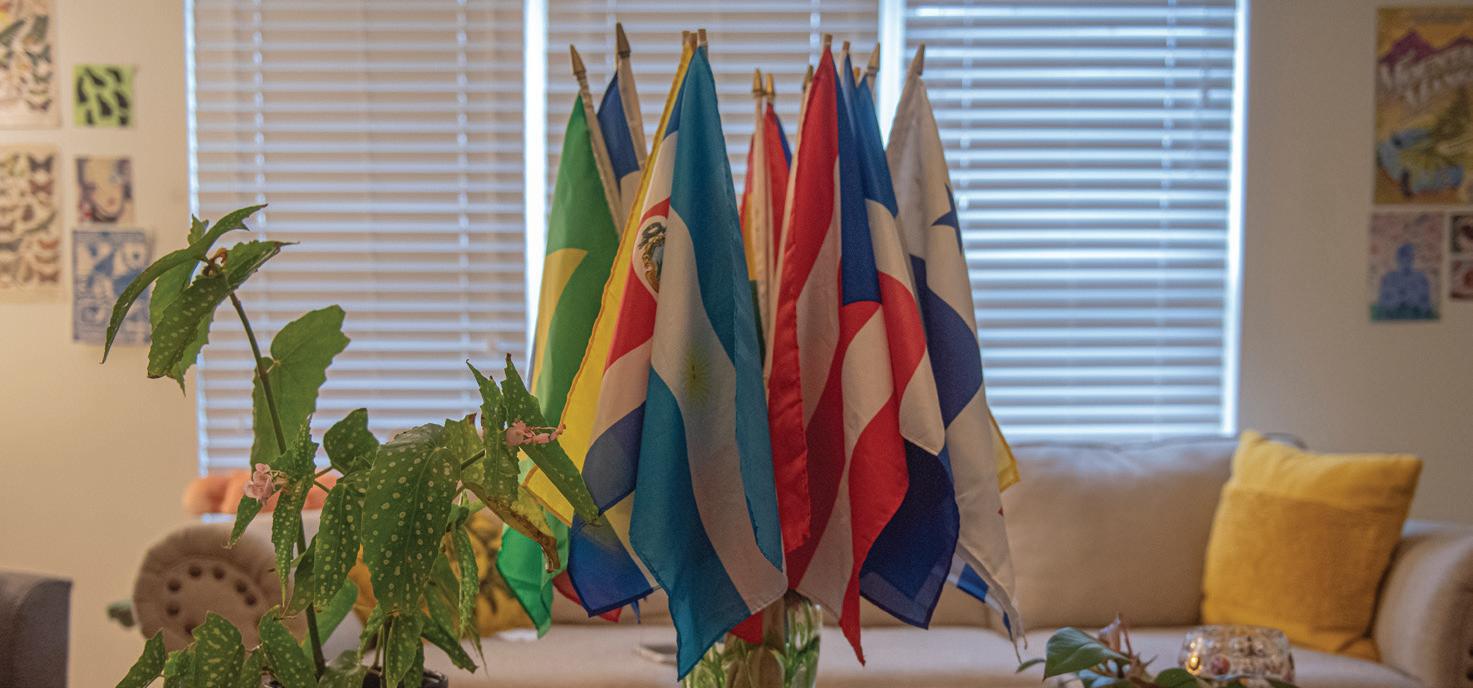
If I were to make a movie about the United States that portrays American slang, music and culture, but then casts only Canadians and only references Canadian culture… you see where I’m going?
In 2023 Latines are still represented as a homogenous group who all look the same, speak the same and act the same. But how many times do we have to tell y’all WE ARE EXTREMELY DIFFERENT.
I mean it’s called a diaspora for a reason. The perpetuation of these stereotypes that continue the biases held against Latines do nothing but put us in harm's way.
Latines come from rich cultures with deep rooted histories. We are so much more than just foreigners, criminals or lovers.


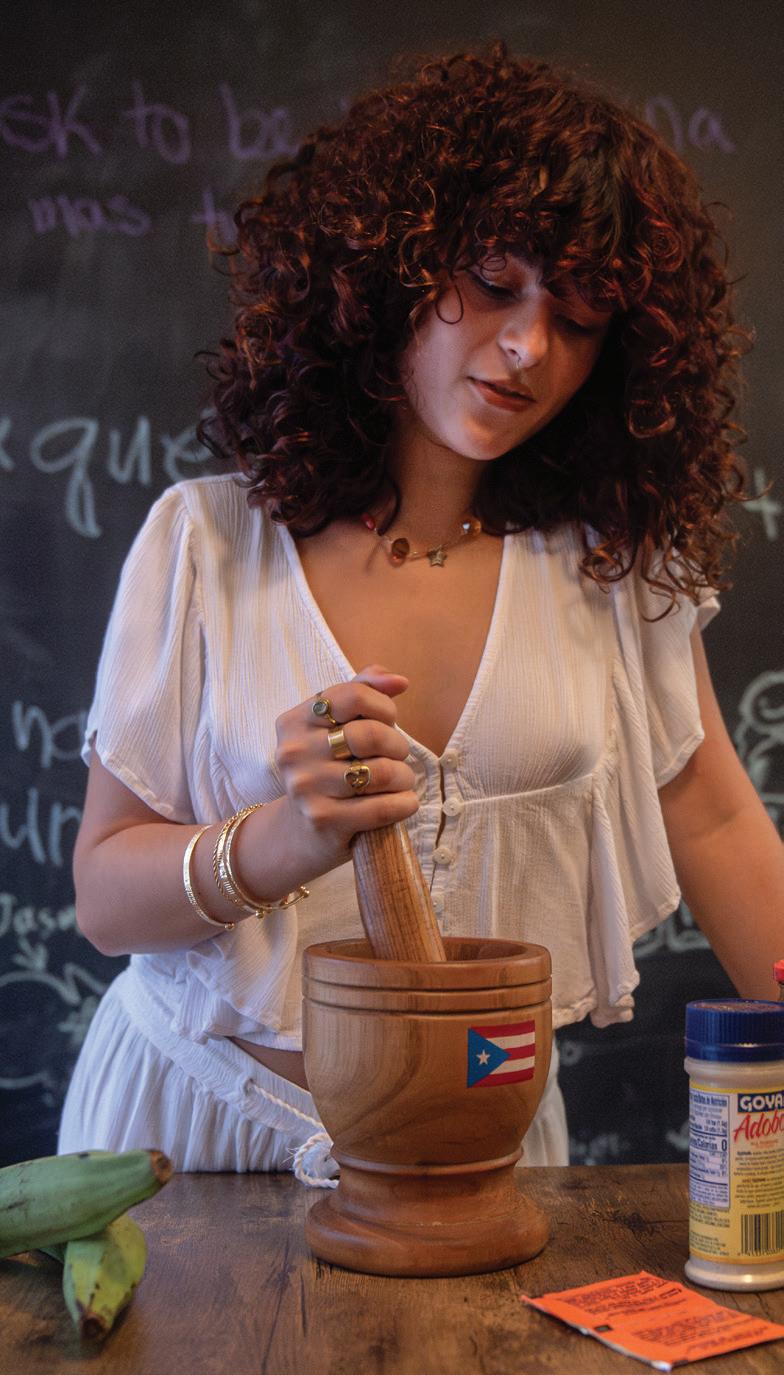
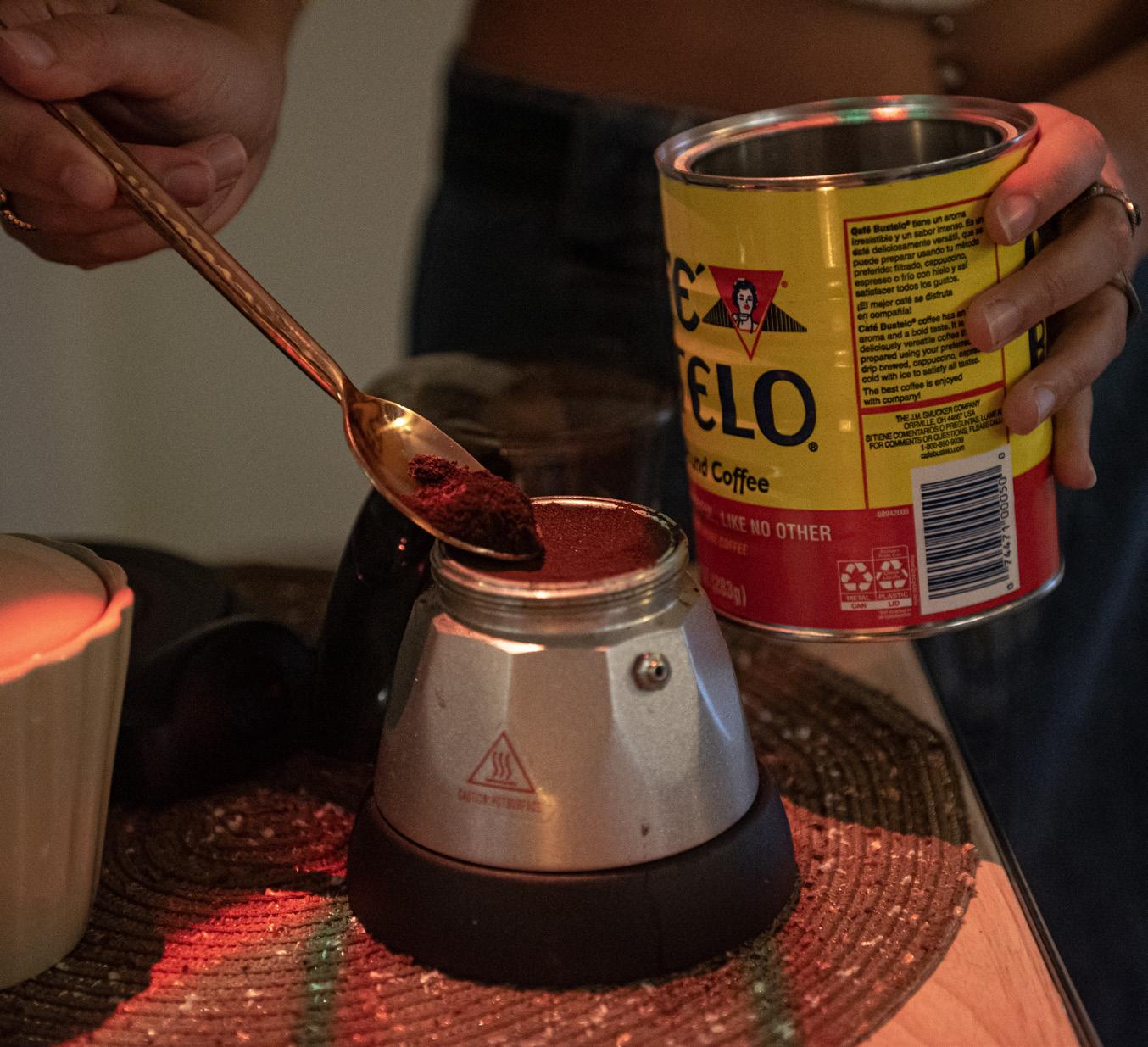
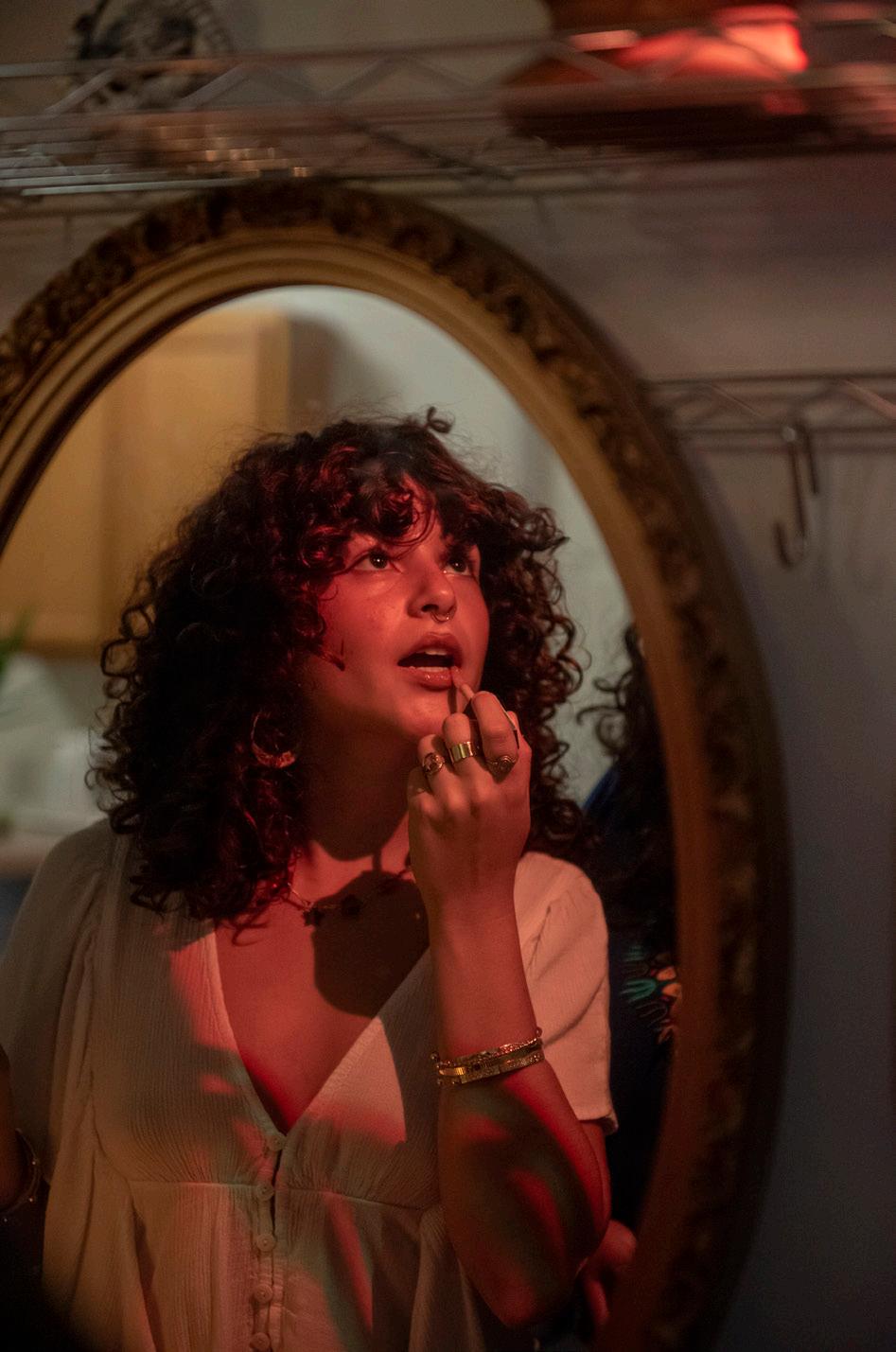
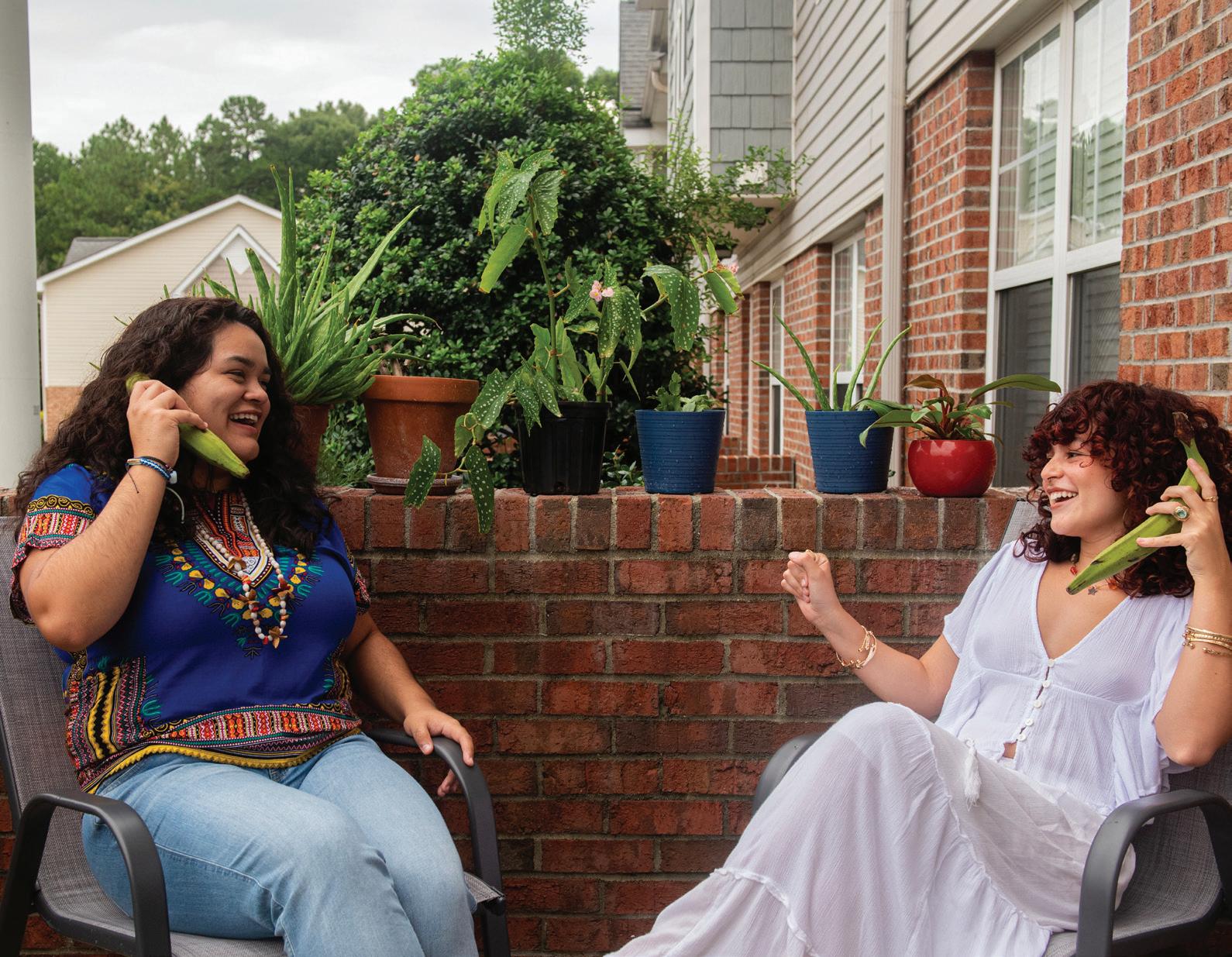
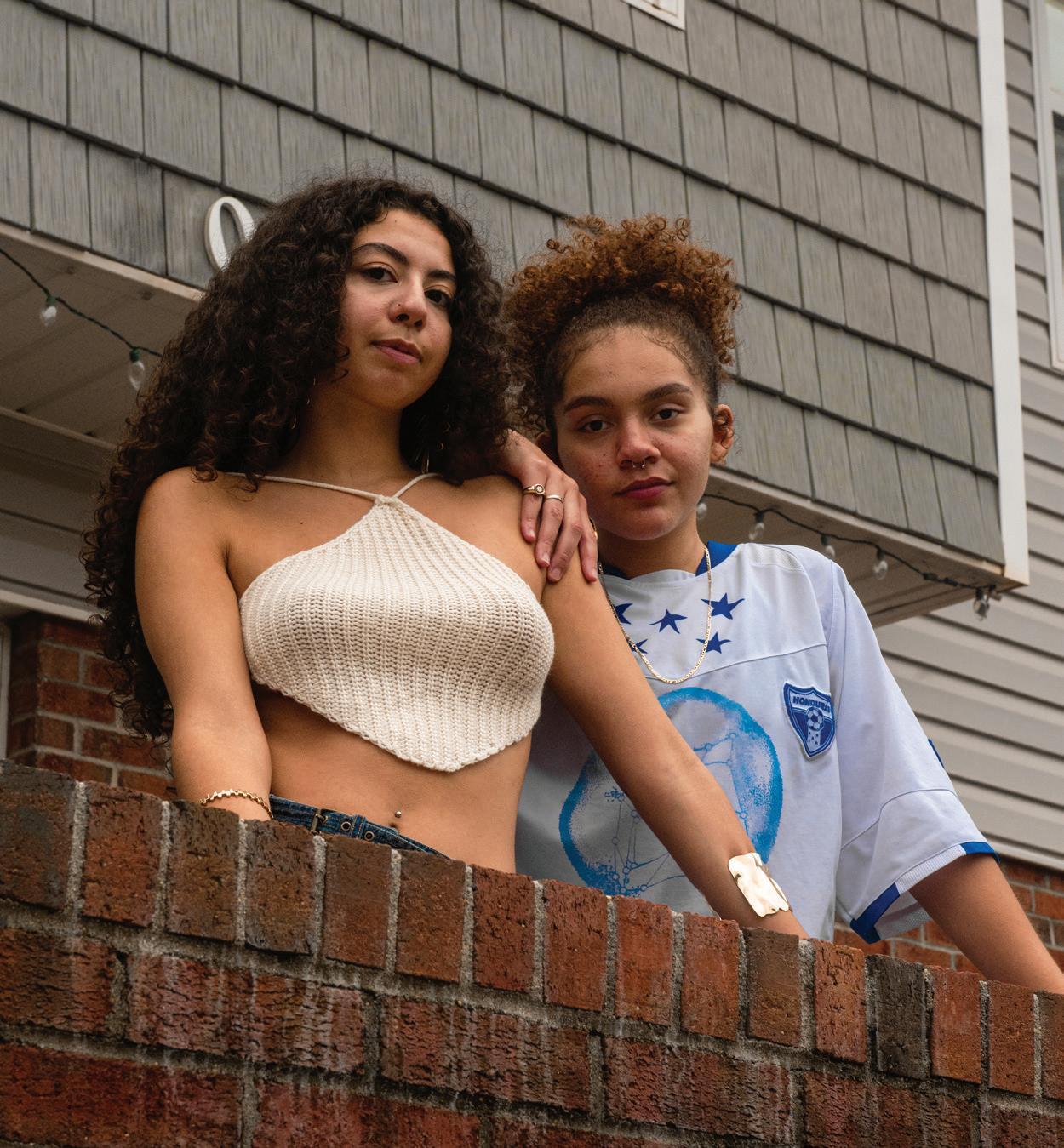
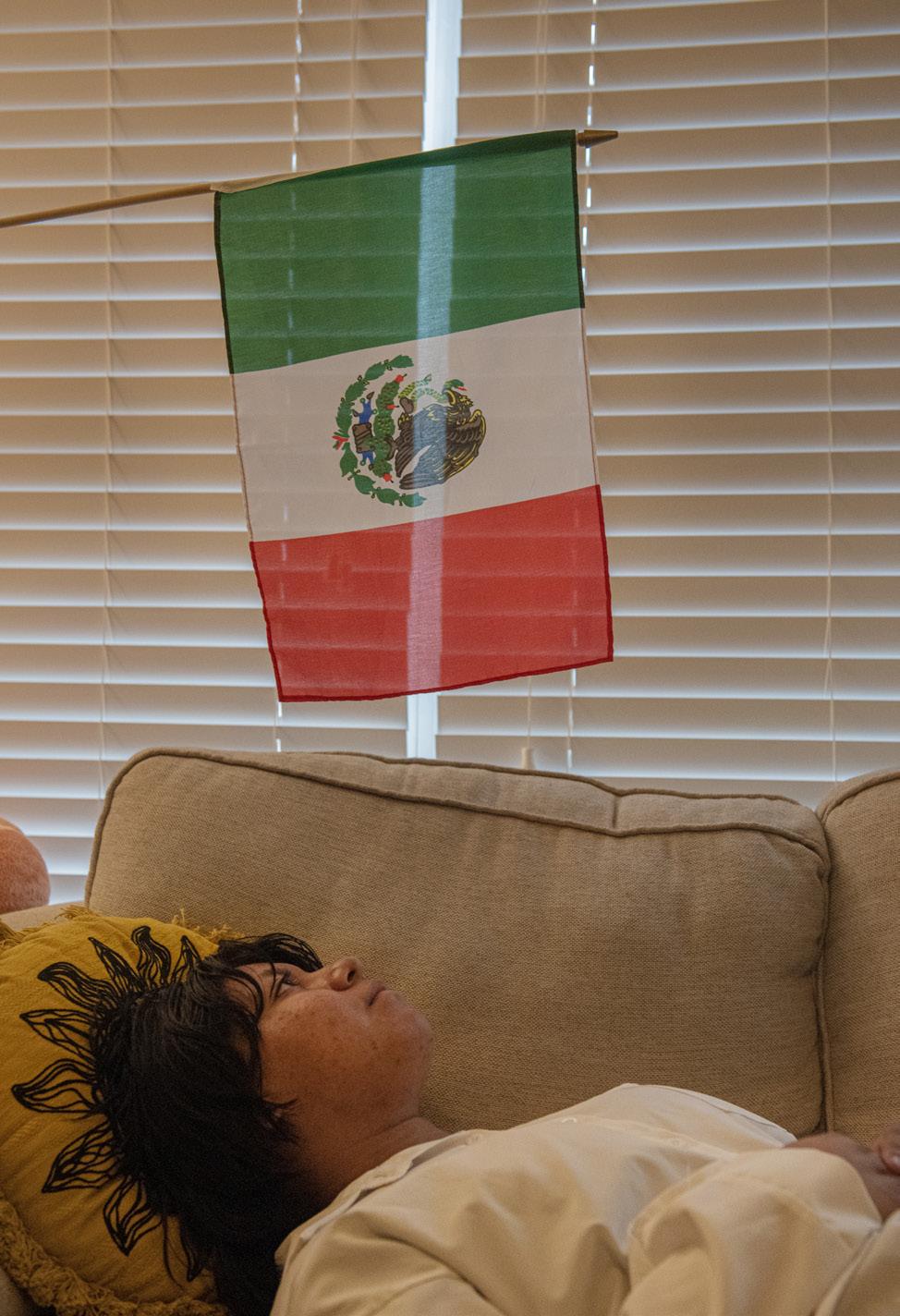
From everyone at Nubian enjoy this Latine Herritage Month photoshoot, highlighting the diverse cultures across the
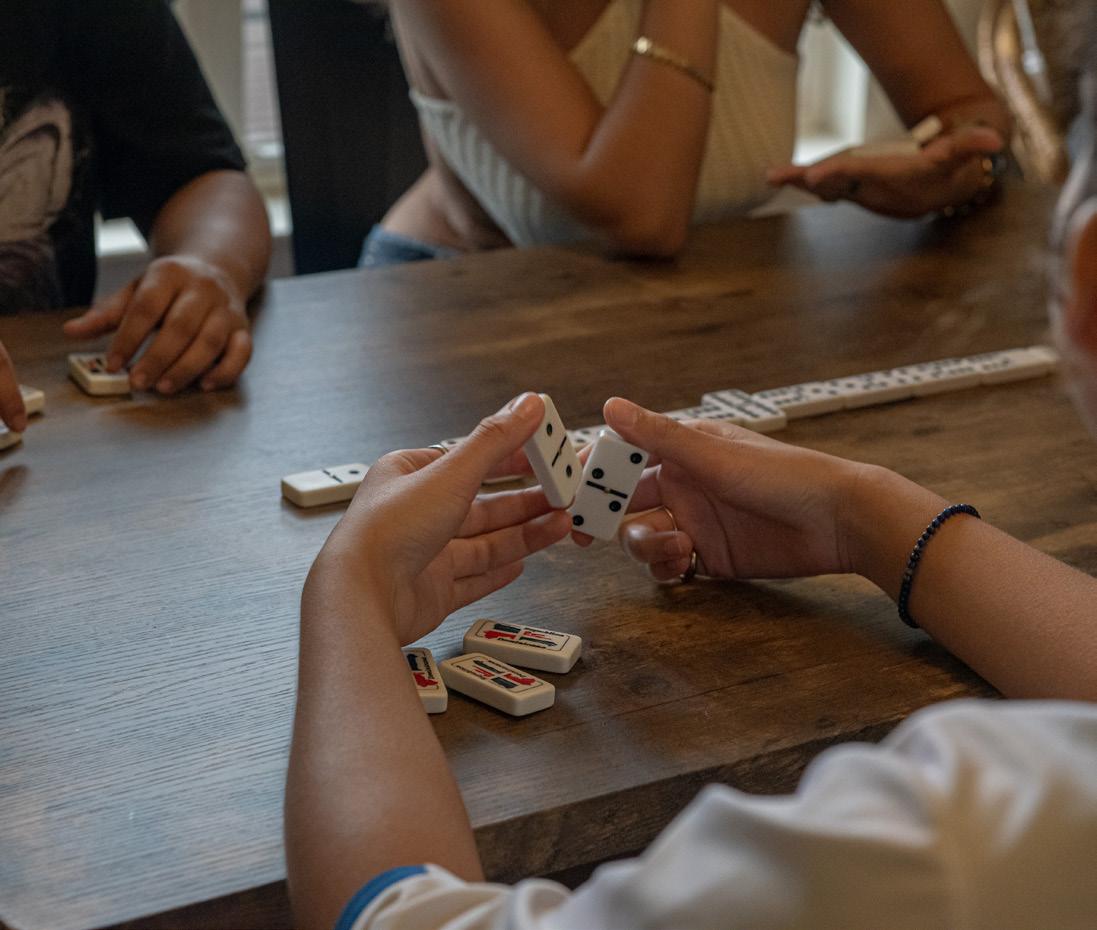
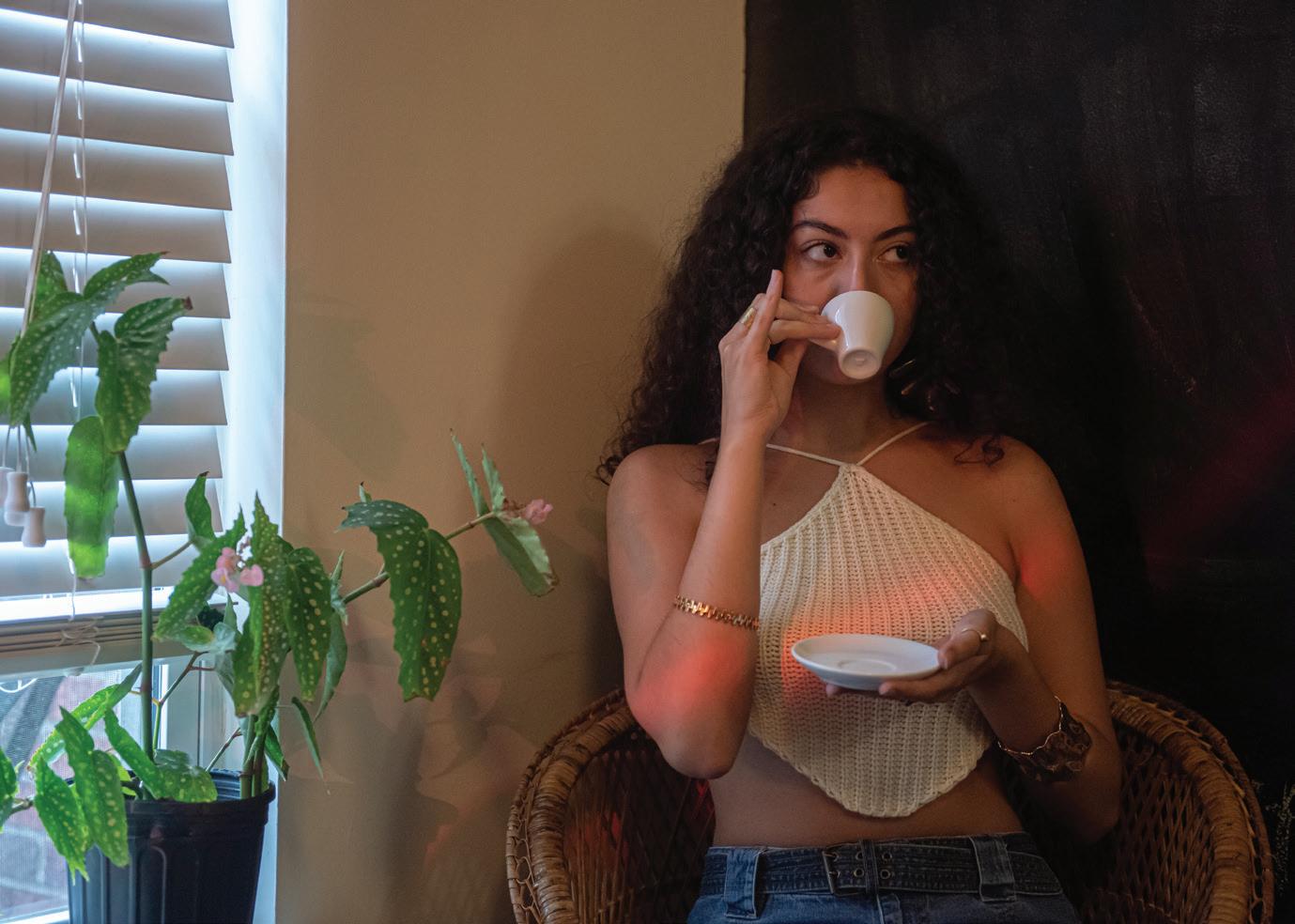
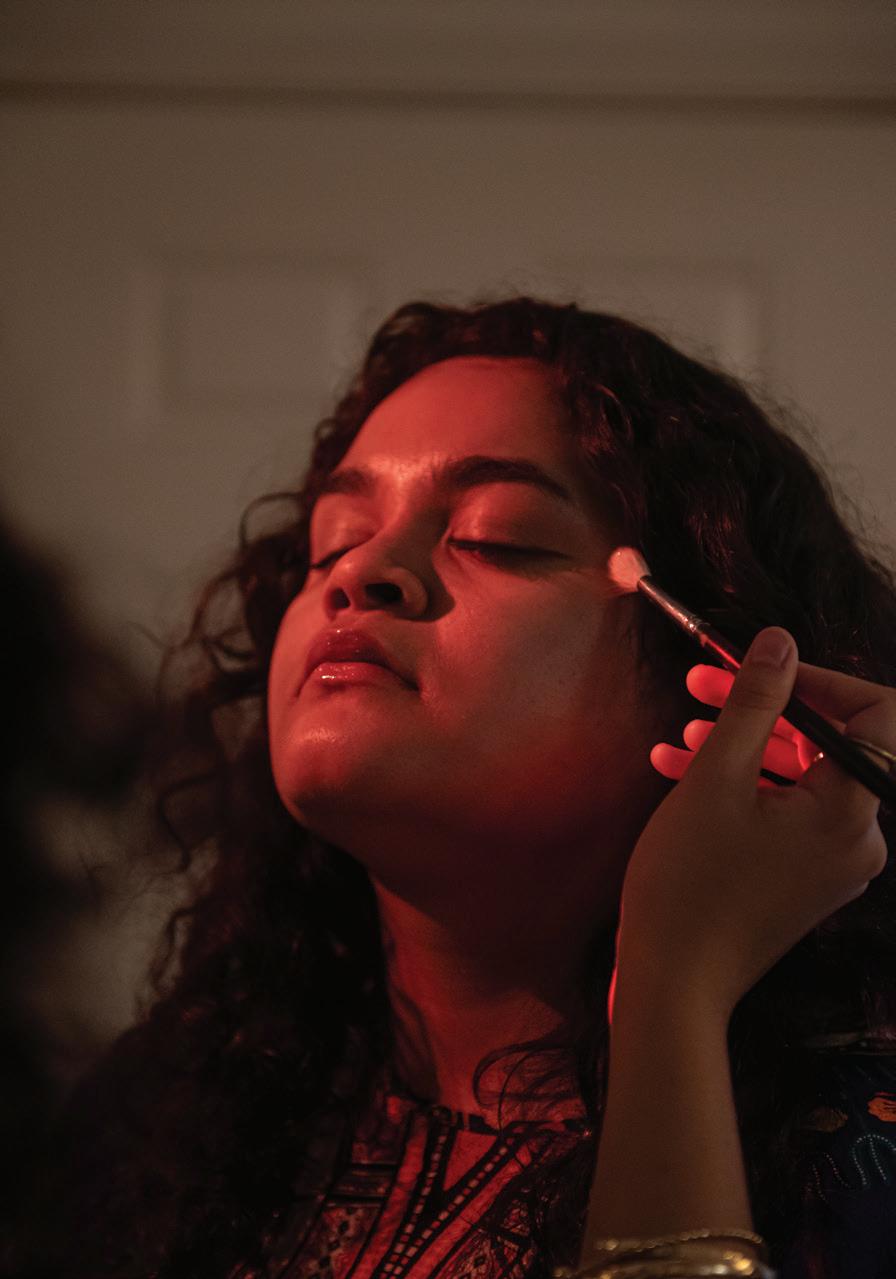
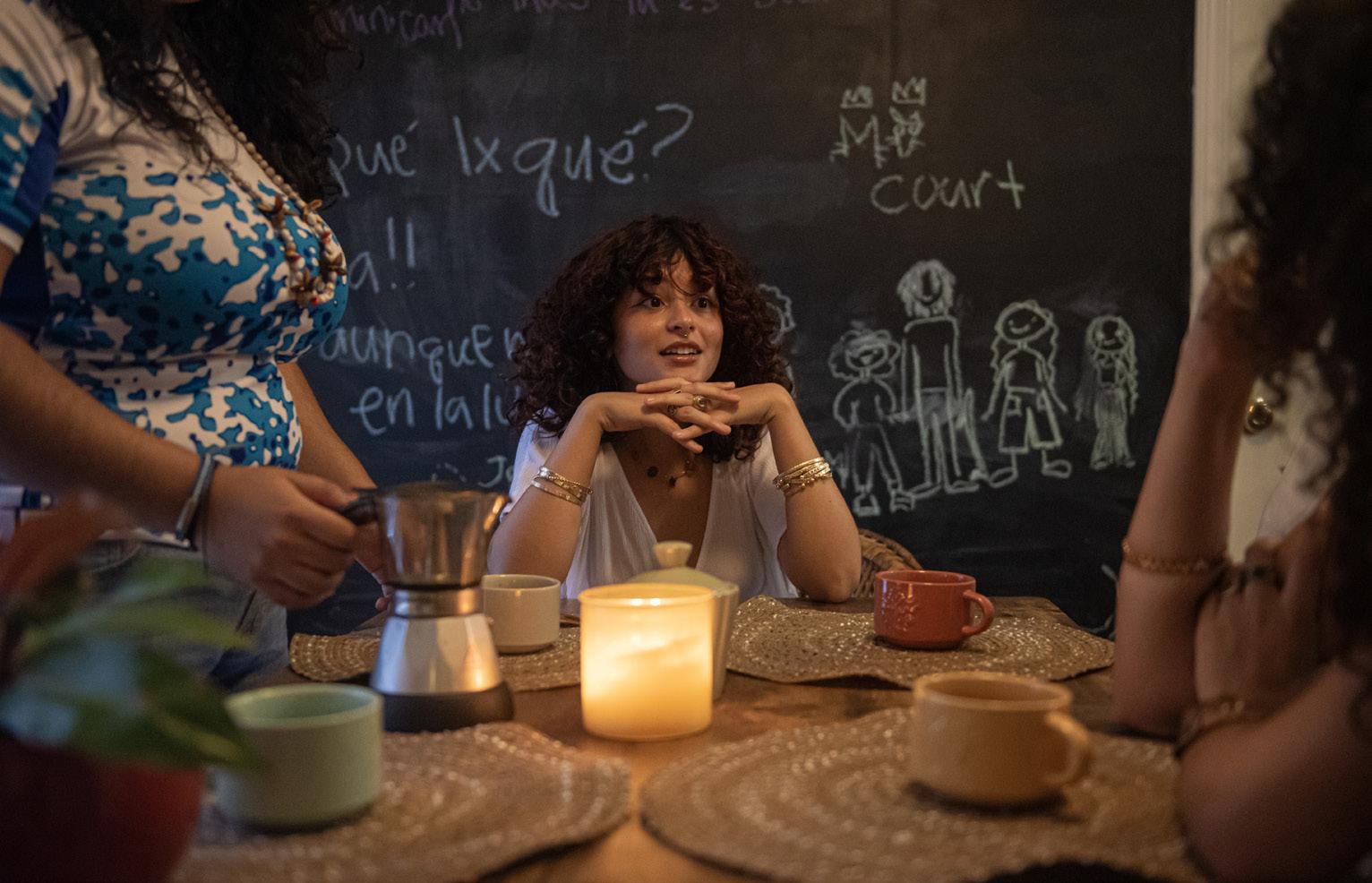
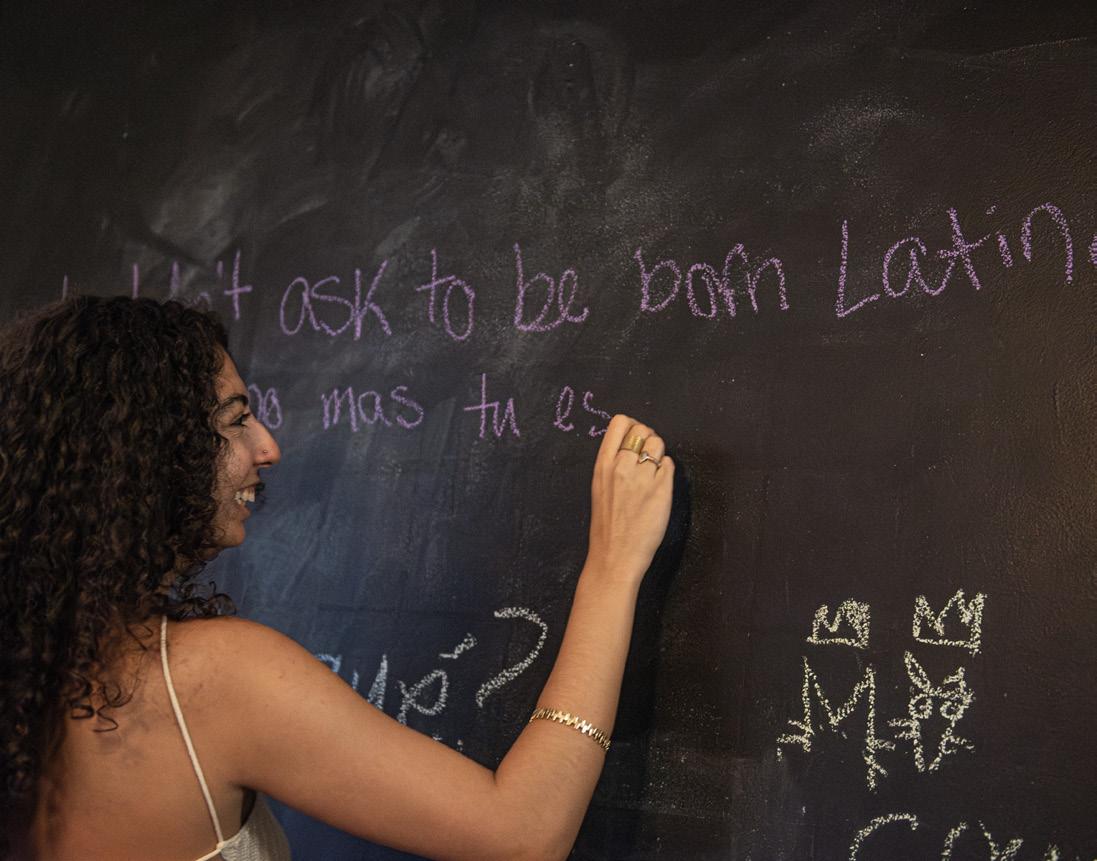
Me ha besado y yo soy otra; por el latido que duplica el de mis venas; otra; por el aliento que se percibe entre el aliento.
Mi vientre ya es noble como mi corazón …
Y hasta encuentro en mi hálito una exhalación de flores:
¡todo por aquel que descansa en mis entrañas blandamente, como el rocío sobre la hierba!
-Gabriela Mistral

playlist by Nubian Message Staff

Some of our favorite songs from Latinx artists.
Spaceway 70 Bruno Pernades
Acaríciame Susana Estrada
Tití Me Preguntó Bad Bunny Como La Flor Selena
Mojabi Ghost tainy, bad bunny
Ven Devórame Otra Vez Lalo Radriguez
Magnólia Jorge Ben Jor
Hips Don’t Lie Shakira, wyclef jean
Sola Jessie Reyez
¡aquÍ yo mando! kali uchis, rico nasty
Moonlight Kali Uchis Si Una Vez Selena
Sick feeling boy pablo
Lo que tú me das Juanpalitoschinos
La Vida Es Fría Jason Joshua
Original EP Cover
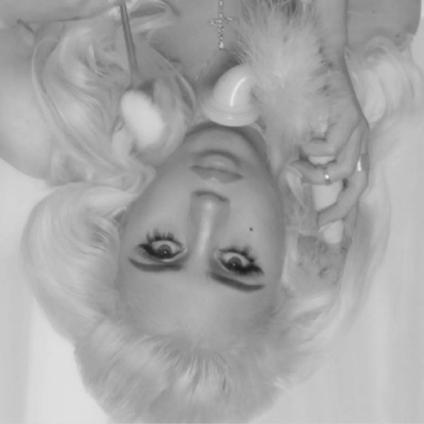
In Aug., 2023, DC Studios released "Blue Beetle", a superhero film directed by Puerto Rican filmmaker, Ángel Manuel Soto. The film follows Jaime Reyes, a Mexican-American teenager, as he returns home from college to help his family deal with the effects of gentrification within their neighborhood. As the eldest child, Jaime takes on the responsibility of helping his family and begins working for Kord Industries, a corrupt company responsible for the displacement within his community. While working he runs into an unlikely love interest, Jenny Kord, the niece of CEO Victoria Kord, who gives him the blue beetle scarab. Unknown to Jaime, the scarab is alien technology integral to Kord Industries plans of creating a private supervillain army. When he arrives home, the scarab fuses to his spine and turns him into the "Blue Beetle".
As the first solo Latino superhero film, "Blue Beetle" showcases Latine culture as Jaime relies on his family to unlock his true power. The culture, values and dynamic of Jaime’s family allows them to stand against Victoria Kord and her plans to destroy their community. The "Blue Beetle" cast achieves remarkable progress in portraying Latine people in film. Although the film has been underrated by critics and viewers, I personally found the movie to be groundbreaking and heartfelt. For those looking for a new superhero movie, "Blue Beetle" subverts cliche expectations and taps into the beauty of Latine culture.
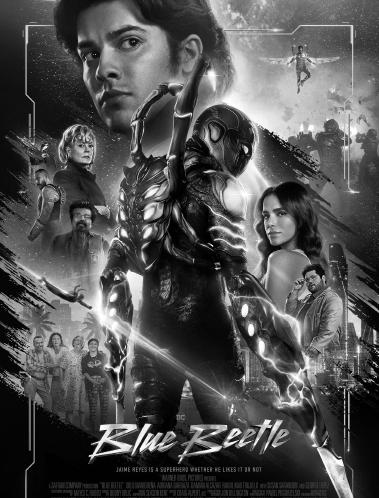
The debut EP “Por Vida” by Kali Uchis is a revolutionary piece of work showcasing the Colombian superstars' angelic essence, musical talent and versatility. “Por Vida” is Uchis' stepping stone, showcasing her dainty, innocent-like vocals behind timeless pop-funk and groovy instrumentals that put life in the listeners ears with every track. Uchis mixes sounds of R&B with pop, creating a niche subgenre many like to call “pretty girl R&B.” “Por Vida” is an EP about the motions of love and the chess game that most succumb to. She opens the EP with “Sycamore Tree,” an acapella piece about her interaction with a lover, waiting on them to make the next move. Following up with “Call Me", a tune where the young artist yearns for a romantic partner and desperately asks the “boy” to call her. The rest of the nine-track EP follows this road back to isolation, closing with “Loner.” “Por Vida” sets Uchis’ tone within the music industry, with hits like “Lottery”, “Melting”, and “Ridin’ Round”, showing how Uchis’ sound is here to last. This EP is extremely nostalgic for me, and my favorite body of work by Uchis. It’s a fun but tragically relatable album about the cycle of love and the inevitable feelings that comes along with it, mixed with reggae-influenced, soulful rhythm and blues. Thus creating a unique but enjoyable sound fits for everyone. "Por Vida" is an EP for all the loverboy’s and girls out there, and certainly one I will be streaming for life!
Eleanor Saunders / Staff Writter
"Ugly Betty" is a dramedy series on Netflix that follows the life of Betty Suarez. Betty is a 22-year-old Mexican American, living in Queens, New York who aspires to have her own magazine one day. For her first career job, Betty is hired as an editor’s assistant to a very prominent magazine, Mode. Her boss, Daniel Meade, is the most eligible bachelor in New York. Daniel’s father, Bradford Meade, hired Betty for one reason: she is ugly and Daniel won’t sleep with her because of it. The show follows Betty as she navigates a very opinionated working environment. Despite her coworkers making fun of her diet and criticizing what she wears, Betty is still able to do her job effectively. In the process, she helps Daniel become a better person and gets noticed by a new and fresh magazine for her passion for fashion.
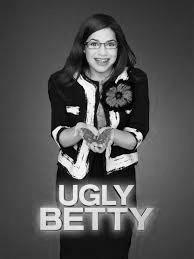
Not only is Betty’s work life hectic, her home life is too. Betty lives with her sister, Hilda, her father, Ignacio and her nephew, Justin. There is never a dull moment in the Suarez’s house. Due to the workload of her new job, tensions have risen in Betty’s home. Hilda believes that Betty doesn’t have time for her family anymore and battles with job insecurity and low self-esteem. On the otherhand,Justin neglects his schoolwork to focus on Betty’s career. Betty and Hilda find out that Ignacio has been an illegal immigrant in the United States for 30 years. This causes problems with his prescriptions for his heart problems and a very clingy case worker to enter into his life. If you are looking for a show that is light-hearted, funny, well-rounded and all about fashion, this is the perfect series for you.
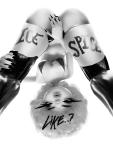 Nadia Hargett / Staff Writer
Nadia Hargett / Staff Writer
The breakout rapper Ice Spice’s debut EP, “Like..?”, was released on Jan. 20 of this year and successfully set the tone for her Bronx-based sound. Named after her iconic use of the word “like” in her songs, the six songs featured on the EP experiment with cartoony instrumentals and club beats while still maintaining that iconic brazen sound of drill music. Ice's down-to-earth attitude paired with her catchy hooks and use of slang terms such as “smoochie” and “munch” have made the EP stick in the minds of the teenagers and young adults of this generation, generating sudden and unparalleled social media buzz. Repping a city that birthed legendary rappers such as Nicki Minaj, Lil’ Kim and Jay Z, Ice has had no problem making her mark. Although her lyrics are simple and aren't necessarily poetic or possess any in-depth meaning, you can't help but get them stuck in your head. Her songs “In Ha Mood” and “Princess Diana ft. Nicki Minaj” are my personal favorites from this release, evoking a fun and confident feeling that makes you want to get up and dance no matter where you are. As Ice Spice herself explains, “It’s for the baddies that get it, for the confident people, for the people that get money. It's just music to feel good to, to get ready to, to work out to.” If you give this EP a listen, you’ll certainly feel like a baddie by the end of it.
The African Student Union (ASU) at North Carolina State University recently kicked off the academic year with a spectacular event setting the tone for the year ahead. The organization hosted a lively cookout, brimming with cultural delights, dance battles, Afro-beats and much more. This vibrant gathering aimed to unite the African and Black communities on campus and fill them with enthusiasm for the upcoming school year.
Pulling off an event of this magnitude is no small feat. ASU's cookout took a dedicated team of volunteers and members to make it happen. The meticulous planning was done weeks in advance and included arranging chairs and tables, finding food vendors, coordinating volunteers and most importantly, ensuring an abundance of mouthwatering dishes. Notably, three colossal pans of Jollof Rice were prepared, providing enough for attendees to take home. The event showcased the richness of African cuisine, featuring traditional African dishes like Suya, fried plantains and a fried dough called Puff-Puff.
ASU's impact in the lives of African students on campus cannot be overstated. Adachi Amaram, a third-year Political Science major and ASU's president, emphasized the significance of events like the cookout in the context of a predominantly white institution. With less than 6% of students being Black, ASU offers a vital space for connection, celebration and cultural exchange. As Amaram stated, it provides a platform for students to "care for each other, to talk to each other, and to celebrate our life and culture."
Joy Lutwantgu, a second-year Political Science major, also shared her personal journey within ASU, highlighting the organization's transformative impact. After observing a decline in ASU's activity due to the COVID-19 pandemic, Lutwantgu joined to help reinvigorate the organization.
She noted, "African Students Union creates a safe space for African students, a home away from home, where they can learn more about the anthropology of African people and African culture." ASU goes beyond events like the cookout; it fosters a sense of belonging
and cultural understanding.
Attendees of the cookout were equally excited in their praise. Chef Alvin Mutongi, a fifth-year senior studying Civil Engineering and an ASU member, described the event as “the embodiment of what it means to be African at NC State.” It allowed students to "celebrate identity and connect with peers."
JaKobi Blackmon, a second-year student studying Art and Design, emphasized how the cookout provided an opportunity to “meet new people, build connections, and chill with friends.”
Jalen Hampton, a first-year student studying Computer Science, shared how the cookout gave him a place to celebrate Black and African culture and try new foods that he never would've had the opportunity to experience. Discovering the event through NC State’s annual Packapalooza, Jalen talked about how diversity was a main concern when choosing to attend NCSU. Enjoying the many festivities, Hampton said, “my favorite part was definitely the line dancing.”
President Amaram noted that, "From the music, carefree dancing and lively conversation, the cookout allowed students to temporarily forget about that assignment due at 11:59 and have a good time.”
Looking ahead, ASU has a lineup of exciting events planned for the 20232024 school year. These include the October Pottery Jam, a celebration of African fashion and beauty at the Met Gala, and an end-of-year celebration in December. With the enthusiastic participation witnessed at the cookout, it's clear that ASU will continue to make a profound impact on both the student body and the university as a whole.
ASU's cookout was more than just a culinary extravaganza, it was a celebration of identity, culture and unity. With an array of exciting events on the horizon, African Student Union is poised to make the 2023-2024 school year a memorable one.
Keep an eye out for ASU's upcoming activities and be part of the vibrant tapestry of culture and community they are weaving on campus. Join the celebration and embrace the rich diversity that ASU brings to NC State's campus.zzz
Carmella Holloway CorrespondentMisogyny is inescapable. The insidious prejudice manifests itself within one of the most liberating artistic mediums, where creativity knows no bounds. It is a disheartening truth that bias still finds its way into music.
A study conducted in 2019 found that women tend to have a more consistent and creative output than their male counterparts within female-dominated genres. However, researchers have suggested these results to be related to social limitations rather than inherent skill. Constraints such as gender-based bias encourage hyper-negative feedback toward female performers.
Like in most disciplines, women within the industry, on average, receive more negative feedback than men and have to work significantly harder to obtain their proper dues. “There are different expectations for women in anything. Women have to be the best and then some,” says Grammy award-winning artist Megan Thee Stallion in an interview with Vulture. She also stated that “A man can get on a track and literally make two noises and be the GOAT. When you listen to a girl rap, she gotta have all the bars, all the flows, be melodic, she gotta look good.”
In a survey taken by MIDiA Research, of 401 women within the music industry, 77% of survey takers feel that female artists do not have the same opportunities as their male counterparts. Additionally, roughly 80% agree that it is more difficult for female artists to get recognition for their work. Therefore, though they may work significantly harder, it continues to be difficult for women within the industry to make progress, especially if they do not fit conventional beauty standards.
According to Media Insights and Decisions in Action Research, a UK-based research and analysis company, roughly 83% of women agree that to succeed as an artist, one must reach a standard of beauty. As seen in a large amount of gossip blogs and magazines, appearance plays a large part in how women are treated. While male musicians do get bullied for being conventionally unattractive or unkempt, female artists get harassed and degraded for their appearance to a more substantial extent. People regard appearance to be a much larger part of their a woman’s identity. Black and brown artists receive a heavy load of this, as darker skin and features have been seen as undesirable under the
Eurocentric standard of beauty. Comments referring to black and brown women as “men” or “savages” among other derogatory terms, are not uncommon in gossip columns and blogs.
Even when appearing aesthetically presentable, female artists continue to be victimized by misogynistic rhetoric formulated to nitpick at irrelevant issues. In many cases, for female artists, the lyrical content of their music never seems to reach the insatiable standards they set for women. Complaints from immature men and women are found at the release of any song created by a female artist. These audiences pounce at the opportunity to scrutinize female lyrical content disproportionately compared to male artists, whom the same individuals often praise for their uninspired lyrics and production.
For women, lighthearted and fun songs, intended to be the backdrop of parties, are criticized for being shallow and lacking vital political commentary. Statements criticizing the “females of this generation” and their sexual expression are rampant. The 2020 release of the Megan Thee Stallion and Cardi B song, WAP, is a prime example of this phenomenon.This innocuous track became controversial over something that musicians had been doing for decades. Conversely, heavily political and intellectually stimulating tracks catch pushback for being too serious and cerebral. Ironically, misogyny has been found to affect men in the industry negatively. The 2019 research found evidence that men who collaborated with women within their medium had received a boost in originality output. Although the most disrespected demographic, associating and collaborating with female artists actively benefits men. Evidence from both sources supports that networking and collaboration with women has led to a noticeable increase in creative production and support for both male and female artists.
Through analysis, one can easily recognize the ways that misogyny affects and harms every individual it touches. Instead of allowing for an environment conducive to creativity and ingenuity, misogyny only takes away from and stunts the creative potential of male and female musicians. Hopefully, as society, biases will begin to disappear, and the music industry will follow by improving their practices to create a more supportive and empowering work environment for female artists.
Toxic entrepreneurship is plaguing this generation. The idea that the best way to be successful and create long-lasting wealth by “becoming your own boss” is redundant. Entrepreneurship is romanticized online but neglects to mention the drawbacks.
In today's mainstream media, entrepreneurship is heavily miscommunicated. Bailey Maybray of The HubSpot Blog stated “While not all business owners are entrepreneurs, all entrepreneurs are business owners.” Entrepreneurs profit off of changes and innovations within the market, while business owners just own businesses. Social media changes what being an entrepreneur means and promotes an unachievable dream.
Toxic entrepreneurship content creates a false perspective of entrepreneurship and glorifies it. While it’s normal to be envious of others, it’s important to navigate social media with caution. View content with a grain of salt and understand that people are only showing the highlights. It’s hard to remember this when you are constantly overwhelmed with “self-made influencers” that inspire people with their lifestyle in such a harmful way.
In addition to harming people with misinformation, toxic entrepreneurs also harm the influencers they use to promote their products. Social media marketing is a common tactic of toxic entrepreneurship. A big part of social media marketing is influencer marketing, where a company will sponsor an influencer’s video to promote their product, hoping that the audience would be influenced to buy said product.
In Feb. 2022, TikTok user @luceroyesy posted a video warning people about a company she was collaborating with. The creator was sent contact lenses and when she put them in, her eyes began to get irritated. She believed that she was the issue until she looked into the lenses’ case, and saw a green-brown, moldy-looking substance forming at the bottom.
The company she was collaborating with was a small contact lens company by the name of Just4Kira. @luceroyesy
wasn’t the only creator to be affected by Just4Kira. Another woman by the name of MariaNicole took to YouTube to discuss her bad experience with the brand, sharing that after receiving four different lenses and trying them all, her eyes hurt. She claimed that Just4Kira is not listed as an approved medical device by the Food and Drug Administration (FDA), even though Just4Kira claims that its ingredients are all FDA-approved.
Brands immorally sell faulty products to gain a profit and grow their “empire.” “When toxic entrepreneurs value money over people, they fall into the ‘whatever it takes’ trap. They place success at the core of their values. That makes it easier to ignore how their actions affect others,” says Jessica Wildfire of The Apeiron Blog
Toxic entrepreneurs don’t only sell harmful products, but false lifestyles. We hear every day how people are unhappy with their careers and feel that it’s too late to explore other career options and opportunities. People prefer to take the easier route of staying in an unhappy situation ratherthan starting back at square one, which is understandable. We are often told that work is not supposed to be fun, but why not? Why is enjoying your work and being passionate in your career field such a foreign concept in society? Why put all your coins in one basket just for the basket to inevitably break?
In some cases, people's subjection to these insufferable careers stems from a lack of self-understanding. What do you like to do? What don’t you like? Discovering things you are interested in can allow you to not make that into a business, but to explore other career options. With hard work and dedication, the same characteristics needed to start a business, you can potentially be content in your career.
The stigma behind working for someone else is also extremely biased. People's unhappiness within other jobs, whether faulty management, upsetting working conditions or discontent in their careers fuels the idea that they can do better themselves. Entrepreneurship is falsely promoted on social media, making it feel like an end-all solution, consequently fueling toxic entrepreneurship.
It's 2013, and we are going into the sixth grade. The beginning of a new era. Before the start of a new year, we need new clothes. After watching "Hannah Montana," "Sam and Cat" and "iCarly," we have some idea of what we want our style to be. We beg our moms to take us to the mall and when we get there, we make a beeline to Justice, Claire’s and Abercrombie Kids.
These television shows and stores are geared towards a certain demographic: tweens. Tweens are children ages nine through thirteen, according to The Spectator, that weird period where adolescents are not yet considered kids but are also not considered teenagers. These years are very important because they allow tweens to choose and discover who they want to be.
Unfortunately, the “Tween Age” is almost nonexistent today. Even in my middle school days, the popular girls did not dress or act like the children they were. I remember leaving high school and thinking it was going to be hard for the younger girls. Instead of them competing against pigtails and age appropriate clothing, they are competing against 30 inch bussdowns and designer clothes. But the problem is way deeper than that.
So, what is the reason? According to The Cardinal Chronicle, TikTok takes a huge amount of the blame. If y'all remember, before there was TikTok, there was Musical.ly, a platform for tweens that focused mainly on lip-singing and trending transitions. If you were on Musical.ly, you were following the trends of our generation and were considered “cool.”
Then, here comes TikTok with its dancing, makeup, clothing and “Day In The Life” trends. These trends, and more, are teaching tweens how to act older than they actually are, causing girls to compare their lives to that of adult women. This in turn causes them to try to be like these adult women. Many young girls have been mistaken for grown women on this app.
Social media, in general, has helped with the erasure of the tween. “Kids at a young age are exposed to what it looks like to
be the “ideal” teenager or even adult and want to replicate that at their own age,” according to The Wrangler. Kids are like sponges, they soak up as much information as possible and then decide what to do with that information. With social media and its trends being the place where they get their information from, their uniqueness is being staunched.
A quick google search of Miranda Cosgrove, the actress who played Carly in "iCarly," when she was thirteen compared to that of Skai Jackson, the actress who played Zuri in "Jessie," at the same age displays a starkingling huge difference.
The loss of the “Tween Age” is not solely TikTok’s fault. According to Her Campus, television shows played a part in the death of the tween as well. Earlier, I mentioned "Hannah Montana," "iCarly" and "Sam and Cat." These shows depict the life of a pre-teen and the problems that they might encounter. The tweens of our generation had these shows that we could relate with because these actors were our age, acting our age.

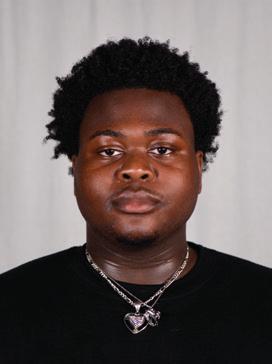
Now, let’s fast forward a couple years. The younger generation is growing up on teen media shows such as "Euphoria." These shows have actors that are older than their target audience, depicting scenes that are inappropriate for a twelve year old to consume.
"Euphoria" is about a teenage girl with an addiction to drugs as well as a number of other teen issues. This show is an example of media that yes, many people like, but ultimately teach the younger generation harmful lessons. These lessons cause them to want to escape their young age and act older than they actually are.
So, how can we combat this? I think parents should do a better job at surveilling what their children watch. We can foster children's understanding of themselves by taking away the TV’s and phones and putting them in environments that encourage individuality and thinking for themselves.
